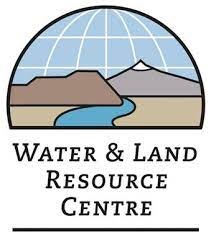
BY STAFF REPORTER
On September 4, 2014, a high level natural resource forum was held in Addis Ababa. Scientists and researchers in the field have been discussing the most pressing natural resource issues. A number of issues related to land, water, forestry and wildlife resources were discussed at the forum organized by PHE Ethiopian Consortium, CIFOR, Water and Land Resource Center; Ethio Natural Resources Enterprise.
The forum was attended by a number of experts with long experience in the field, and five research papers were presented and discussed. Ethiopia’s current state of natural resources, challenges and adverse effects on natural resources; The current situation and challenges of Ethiopia’s forest resources; Ethiopia’s Green Ecological Challenges and Opportunities: Ethiopian Land Use Plan and Land Policy; Research papers on institutional arrangements for the protection and development of natural resources in Ethiopia were also presented and discussed.
Although Ethiopia is a land of fertile soil, favorable climate, water, wildlife and many other natural resources, its natural resources are not being managed properly and have not been fully utilized. According to research, the country’s land, water, forest, and wildlife resources are deteriorating.
Research shows that natural disasters are on the rise, and that there are a variety of causes for them. Investors and smallholder farmers blame deforestation, clearing forest for agriculture, overgrazing, over logging as the main reasons for deforestation.
The study indicates that increasing human and animal population dependent on natural resources, the lack of a national land use plan to manage land use needs and changes, exacerbated by the lack of a clear and effective land tenure system for forests, exacerbated the problem.
In addition to the above, Ethiopia has regulations and guidelines for the protection of natural resources, but non-compliance with regulations, the weakening of the private sector’s role in natural resource utilization and development, and the increasing socio-ecological vulnerability of forest communities are exacerbated by climate change.
The problem is exacerbated by the government’s focus on food production, the lack of a strong natural resource conservation agency, the lack of communication between federal and state institutions, and conflicting agricultural and conservation sector plans.
According to Dr. Habtemariam, it is difficult to provide forestry training and support to farmers due to the lack of an institution that focuses on the issue at the lower level of government. Therefore, there should be institutions that work around the natural resources of the lower levels of government.
He attributed the problem to the fact that organizations involved in the development and conservation of natural resources are facing disintegration and integration at various times.
At the end of the forum, the participants made recommendations on how to prevent natural resource degradation and how to better manage the management of natural resources. The fragmentation of natural resources has exacerbated the problem, with scholars working in all directions to save wildlife alone, natural forests, and
biodiversity in particular. He noted that it is not possible to achieve the desired results through fragmented efforts.
He also called for the establishment of new ministries to prevent depletion of natural resources. Experts have called for the new government to be formed in a few weeks, with the Ministry of Natural Resources and Climate and the Ministry of Lands and Environment.
Currently, natural resource development activities are divided into two institutions under two ministries and one commission, he said, adding that the natural resource development and management work, which is composed of three institutions, will be effective in conserving natural resources.
Ethiopian Biodiversity Institute; Ethiopian Wildlife Development and Conservation Authority Ethiopian Environment and Forest Research Institute; the Forest Service Conservation and Development Organization, the Institute for Climate Analysis and forecasting, the Institute for Geospatial Information and the Environmental Protection Standards and Supervisory Agency are recommended to be accountable.
Experts in the field said that land needs to be managed through planning and planning. He said the new ministry will be able to manage protected lands and be responsible for developing and conserving other natural resources, he said.
Experts in the field also said that the government should consider strengthening the institution in order to achieve the desired results in the sector. He said the experts will continue their efforts to change the sector in various ways.
Apart from organizing an institution, it is necessary to involve the community and the private sector in order to develop the forest sector and to coordinate the goal of the forest sector with the goals of the country, he said. It is hoped that the soon-to-be-formed government will accept the recommendations of the scholars and implement them.
The Ethiopian Herald September 23/2021




